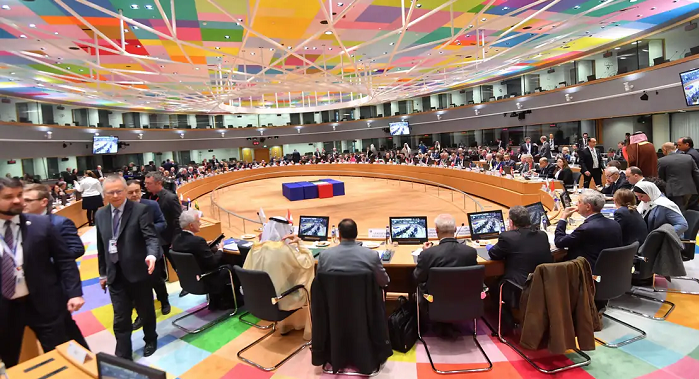Countries participating in the Donors’ Conference for Syria held in Brussels have pledged an additional $7.5 billion to help alleviate the suffering caused by the civil war. After the conference, European Union Commissioner Janez Lenarčič stated that the funds allocated for Syria consist of $5 billion in grants and $2.5 billion in loans.
Germany pledged a contribution of $1.053 billion for Syria. Tobias Lindner, State Minister at the German Foreign Office from the Green Party, stated that the funds promised by Germany will be allocated to support the people in Syria and neighboring countries.
The Syrian people suffer from hunger and misery in many areas of the country due to the civil war that began in 2011. Following peaceful protests against Bashar al-Assad’s regime, the government’s severe crackdown plunged the country into violence and chaos. To date, there is no political solution to the prolonged conflict in Syria.
According to United Nations reports, approximately 13 million people will face hunger this year in Syria, and a third of the children attend school without having breakfast. Eight out of nine school children cannot meet the minimum nutritional requirements.
The conference also saw disagreements regarding the treatment of Syrian refugees in Europe. Lindner presented Germany’s viewpoint, stating that Germany believes it is not feasible to forcibly repatriate refugees to Syria under the current conditions, particularly in areas controlled by the Syrian government. Safe and dignified return to Syria must be voluntary. Meanwhile, eight EU countries called for a reassessment of the situation in Syria.
These eight countries—Greece, Cyprus, Malta, Italy, Austria, the Czech Republic, Denmark, and Poland—argue that granting international protection to Syrian refugees was necessary following the outbreak of the civil war in 2011. However, after 13 years, the situation in Syria has changed significantly despite the lack of complete political stability. Greece and Cyprus have called for the classification of specific areas in Syria as safe zones, citing the substantial increase in the number of refugees.





